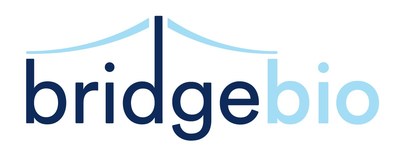BridgeBio Pharma Announces Updated Phase 2B Data for Encaleret in Autosomal Dominant Hypocalcemia Type 1 (ADH1) Demonstrating Blood and Urine Calcium Normalization in Trial Participants
Rhea-AI Summary
BridgeBio Pharma (Nasdaq: BBIO) reported updated results from its ongoing Phase 2b study of encaleret for treating Autosomal Dominant Hypocalcemia Type 1 (ADH1). The study involved 13 participants, with encaleret normalizing mean blood calcium levels and 24-hour urine calcium excretion within five days. No serious adverse events were reported, showcasing the drug's tolerability. The company plans to engage regulatory authorities for a Phase 3 study, aiming to develop the first approved therapy for ADH1. The ongoing research highlights a significant unmet medical need in this rare condition.
Positive
- Encaleret normalized mean blood calcium levels and 24-hour urine calcium excretion within five days in 13 participants.
- The drug showed high tolerability with no serious adverse events reported.
- The study results support further exploration of encaleret as a potential treatment for ADH1.
- BridgeBio plans to initiate a Phase 3 study, potentially leading to the first approved therapy specifically for ADH1.
Negative
- None.
News Market Reaction
On the day this news was published, BBIO declined 1.40%, reflecting a mild negative market reaction.
Data tracked by StockTitan Argus on the day of publication.
PALO ALTO, Calif., Oct. 1, 2021 /PRNewswire/ -- BridgeBio Pharma, Inc. (Nasdaq: BBIO), a commercial-stage biopharmaceutical company founded to discover, create, test and deliver meaningful medicines for patients with genetic diseases and cancers with clear genetic drivers, today announced updated results from its ongoing Phase 2b proof-of-concept, open-label study of encaleret for the treatment of Autosomal Dominant Hypocalcemia Type 1 (ADH1). Within five days of individualized dose titration in 13 participants, encaleret normalized mean blood calcium levels and 24 hour urine calcium excretion. The results are featured in an oral presentation titled 'The Effects of Encaleret (CLTX-305) on Mineral Physiology in Autosomal Dominant Hypocalcemia Type 1 (ADH1) Demonstrate Proof-of-Concept: Early Results from an Ongoing Phase 2B, Open-Label, Dose-Ranging Study' at the American Society for Bone and Mineral Research (ASBMR) 2021 Annual Meeting, taking place in San Diego, California on October 1 – 4, 2021.
"Autosomal dominant hypocalcemia type 1 is a rare genetic form of hypoparathyroidism caused by gain-of-function variants of the calcium-sensing receptor (CASR) gene. The current standard of care consists of calcium and active vitamin D supplements, which do not address the root cause of ADH1," said Rachel Gafni, M.D., Senior Research Physician and Head, Mineral Homeostasis Studies Group of the National Institute of Dental and Craniofacial Research, National Institutes of Health (NIH). "These updated results from the ongoing Phase 2b study of encaleret demonstrate consistent improvements in mineral homeostasis and support further study."
In this update from the ongoing Phase 2b open-label, dose-ranging study, 13 adults with ADH1 with nine distinct CASR variants were administered encaleret. Calcitriol (active Vitamin D) and extra-dietary calcium supplementation beyond the recommended daily intake (current standard of care) were discontinued during the study.
Through the inpatient observation periods of defined dose escalation and individualized dose titration, encaleret was well-tolerated with no serious adverse events, no adverse events of severe intensity, or treatment discontinuation due to adverse events reported. Across 13 trial participants, encaleret normalized mean blood calcium levels and 24-hour urine calcium excretion during Periods 1 and 2. Parathyroid hormone levels increased in all participants and mean blood phosphate decreased into the normal range during Periods 1 and 2. The tolerability and consistent mineral responses following encaleret administration demonstrate that encaleret may become an efficacious therapy option for patients with ADH1.
"As a direct modulator of the calcium-sensing receptor's (CaSR) sensitivity to calcium, encaleret is designed to target this genetic disease at its source, which is gain-of-function (increased sensitivity to calcium) variants in the receptor. The results we are achieving with encaleret for autosomal dominant hypocalcemia type 1 in the current clinical trial are remarkable, as both blood and urine calcium normalize within five days of dosing. Given the consistent improvements seen in mineral homeostasis, we are excited about encaleret's potential to help patients with ADH1 who currently have no approved therapy indicated to treat this disease," said Jonathan Fox, M.D., Ph.D., Chief Medical Officer of the cardiorenal companies at BridgeBio. "We recognize the magnitude of the unmet need for these patients and are working collaboratively with regulators to define a path forward for registration. We look forward to sharing complete results next year from this ongoing study which is currently in an outpatient treatment phase."
BridgeBio plans to engage with regulatory health authorities to discuss the design of a Phase 3 registrational study in patients with ADH1. If the development program is successful, encaleret could be the first approved therapy indicated specifically for the treatment of ADH1.
At ASBMR 2021, BridgeBio will also present a retrospective systematic literature review of ADH1 and clinical study designs for its PROPEL and PROPEL2 studies of low-dose infigratinib in people with achondroplasia, which is the most common form of genetic short stature with a prevalence of greater than 55,000 cases in the United States and European Union. Low-dose infigratinib is the only known product candidate in clinical development for achondroplasia that is designed to target the disease at its genetic source and the only orally administered product candidate in clinical-stage development.
BridgeBio's investigational therapies for ADH1 and achondroplasia are two of the company's 14 programs that are being advanced in the clinic or commercial setting for patients living with genetic diseases and genetically driven cancers.
BridgeBio's first wave of programs are the now-approved drugs for Molybdenum Cofactor Deficiency (MoCD) Type A and previously-treated locally advanced or metastatic cholangiocarcinoma (CCA) harboring an FGFR2 fusion or rearrangement. The second wave of programs includes the Company's four major near-term catalysts for its product candidates for the treatment of ADH1 and achondroplasia, as well as transthyretin (TTR) amyloidosis (ATTR) and congenital adrenal hyperplasia (CAH).
BridgeBio's ongoing third wave in development includes a variety of programs in the cancer and mendelian space already in the clinic.
Learn more about the updated data for encaleret, low-dose infigratinib and the BridgeBio pipeline at the Company's upcoming virtual R&D Day on Tuesday, October 12, 2021, from 8:30 – 11:30 am ET. The event will be webcast and registration information can be found here.
The ASBMR presentation for the updated Phase 2b data in encaleret can be found here.
About Encaleret
Encaleret is an investigational, orally-administered small molecule that selectively antagonizes the CaSR, targeting ADH1 at its source. The current standard-of-care for ADH1 patients consists of oral calcium and/or vitamin D supplements that are typically administered to manage signs and symptoms associated with hypocalcemia. Encaleret has received Fast Track and Orphan Drug Designations from the U.S. FDA.
About Autosomal Dominant Hypocalcemia Type 1 (ADH1)
ADH1 is caused by gain-of-function variants of CASR, which are estimated to be harbored by 12,000 individuals in the United States.1 This gene encodes the calcium-sensing receptor, CaSR, which senses and regulates the level of extracellular calcium in the body as measured in the blood through its effects on the parathyroid glands, the kidney, and bone. Due to increased sensitivity of the CaSR to extracellular calcium, patients with ADH1 have low blood calcium (hypocalcemia), inappropriately low parathyroid hormone levels, and excess urinary excretion of calcium (hypercalciuria). Hypocalcemia can cause severe muscle cramping and seizures, while hypercalciuria can lead to kidney calcifications and impaired kidney function.
About BridgeBio Pharma, Inc.
BridgeBio Pharma, Inc. (BridgeBio) is a biopharmaceutical company founded to discover, create, test and deliver transformative medicines to treat patients who suffer from genetic diseases and cancers with clear genetic drivers. BridgeBio's pipeline of over 30 development programs ranges from early science to advanced clinical trials and its commercial organization is focused on delivering the company's two approved therapies. BridgeBio was founded in 2015 and its team of experienced drug discoverers, developers and innovators are committed to applying advances in genetic medicine to help patients as quickly as possible. For more information visit bridgebio.com and follow us on LinkedIn and Twitter.
BridgeBio Pharma, Inc. Forward-Looking Statements
This press release contains forward-looking statements. Statements we make in this press release may include statements that are not historical facts and are considered forward-looking within the meaning of Section 27A of the Securities Act of 1933, as amended (the Securities Act), and Section 21E of the Securities Exchange Act of 1934, as amended (the Exchange Act), which are usually identified by the use of words such as "anticipates," "believes," "estimates," "expects," "intends," "may," "plans," "projects," "seeks," "should," "will," and variations of such words or similar expressions. We intend these forward-looking statements to be covered by the safe harbor provisions for forward-looking statements contained in Section 27A of the Securities Act and Section 21E of the Exchange Act and are making this statement for purposes of complying with those safe harbor provisions. These forward-looking statements, including statements relating to expectations, plans and prospects regarding the preclinical and clinical development plans, clinical trial designs, clinical and therapeutic potential, and strategy of our product candidates, including, but not limited to: the unknown future impact of the COVID-19 pandemic delay on our ongoing clinical trials and/or our operations or operating expenses; updated results from our ongoing Phase 2b proof-of-concept, open-label study of encaleret for the treatment of Autosomal Dominant Hypocalcemia Type 1 (ADH1) not being indicative of final data from our Phase 2b study of encaleret; the potential size of the target patient population with a rare genetic form of hypoparathyroidism caused by pathogenic variants in the calcium-sensing receptor (CASR) gene; the inability of current standard of care therapies to treat ADH1; encaleret continuing to be well-tolerated with no serious adverse events and no adverse events of moderate or severe intensity reported in our ongoing Phase 2b proof-of concept, open-label study; tolerability and consistent mineral responses following encaleret administration in all 13 ADH1 trial participants continuing to demonstrate proof-of-concept that encaleret may be an efficacious therapy option for ADH1; the timing and success of our planned meetings with regulatory health authorities, including the U.S. Food and Drug Administration (FDA), to discuss potential paths to registration prior to initiation of a Phase 3 registrational study in patients with ADH1; the ability of encaleret to be the first approved therapy option indicated specifically for the treatment of ADH1, if the development program is successful; the continuing close collaboration between world-leading experts in calcium homeostasis at the National Institute of Dental and Craniofacial Research at the National Institutes of Health and BridgeBio; the clinical study designs for our Phase 2b study of encaleret in ADH1; and the timing of these events, reflect our current views about our plans, intentions, expectations, strategies and prospects, which are based on the information currently available to us and on assumptions we have made. Although we believe that our plans, intentions, expectations, strategies and prospects as reflected in or suggested by those forward-looking statements are reasonable, we can give no assurance that the plans, intentions, expectations or strategies will be attained or achieved. Furthermore, actual results may differ materially from those described in the forward-looking statements and will be affected by a number of risks, uncertainties and assumptions, including, but not limited to: ongoing data from our ongoing Phase 2b proof-of-concept, open-label study of encaleret for the treatment of ADH1 not being indicative of final data; the potential size of the target patient population for ADH1 not being as large as anticipated; encaleret not being well-tolerated, with serious adverse events and adverse events of moderate or severe intensity being reported in the final Phase 2b study data; encaleret not continuing to demonstrate that it may be an efficacious therapy option for ADH1 based on the final Phase 2b data; encaleret not being the first approved therapy option indicated specifically for the treatment of ADH1, if the development program is not successful or if a competing therapy option is approved; the design and success of ongoing and planned clinical trials, future regulatory filings, approvals and/or sales; despite having ongoing and future interactions with the FDA or other regulatory agencies to discuss potential paths to registration prior to initiation of a Phase 3 registrational study of encaleret in patients with ADH1, the FDA or such other regulatory agencies may not agree with our regulatory approval strategies, components of our filings, such as clinical trial designs, conduct and methodologies, or the sufficiency of data submitted; the continuing success of our close collaboration between the National Institute of Dental and Craniofacial Research at the National Institutes of Health; potential adverse impacts due to the global COVID-19 pandemic such as delays in regulatory review, manufacturing and supply chain interruptions, adverse effects on healthcare systems and disruption of the global economy; and those risks set forth in the Risk Factors section of our most recent annual report on Form 10-K filed with the U.S. Securities and Exchange Commission (SEC) and our other SEC filings. Moreover, BridgeBio operates in a very competitive and rapidly changing environment in which new risks emerge from time to time. These forward-looking statements are based upon the current expectations and beliefs of BridgeBio's management as of the date of this release and are subject to certain risks and uncertainties that could cause actual results to differ materially from those described in the forward-looking statements. Except as required by applicable law, we assume no obligation to update publicly any forward-looking statements, whether as a result of new information, future events or otherwise.
[1] Dershem et al., Amer Jour of Hum Genetics, 2020
BridgeBio Media Contact:
Grace Rauh
Grace.rauh@bridgebio.com
(917) 232-5478
BridgeBio Investor Contact:
Katherine Yau
katherine.yau@bridgebio.com
(516) 554-5989
BridgeBio ADH1 Patient Advocacy Contact:
Jocelyn Ashford
jocelyn.ashford@bridgebio.com
(650) 452-4199
![]() View original content to download multimedia:https://www.prnewswire.com/news-releases/bridgebio-pharma-announces-updated-phase-2b-data-for-encaleret-in-autosomal-dominant-hypocalcemia-type-1-adh1-demonstrating-blood-and-urine-calcium-normalization-in-trial-participants-301390042.html
View original content to download multimedia:https://www.prnewswire.com/news-releases/bridgebio-pharma-announces-updated-phase-2b-data-for-encaleret-in-autosomal-dominant-hypocalcemia-type-1-adh1-demonstrating-blood-and-urine-calcium-normalization-in-trial-participants-301390042.html
SOURCE BridgeBio








